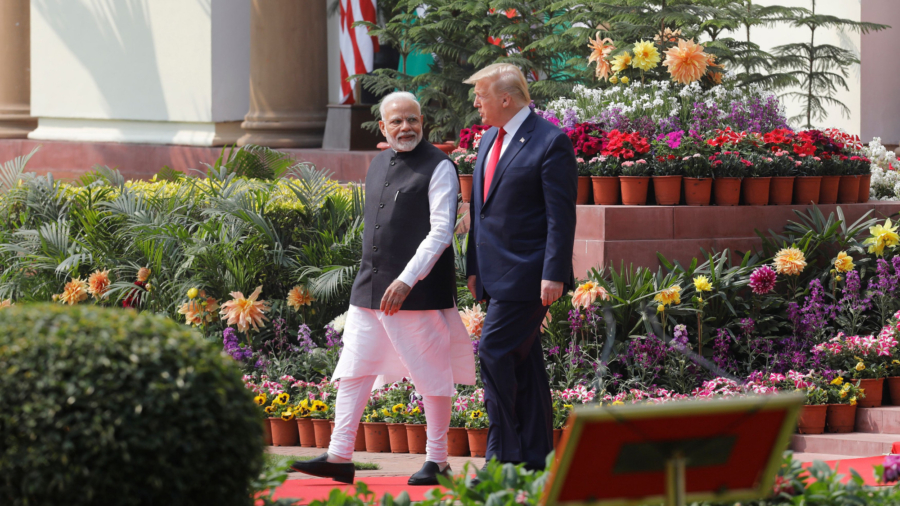President Donald Trump and First Lady Melania Trump have finished their state visit to India, and while there was a grand display of goodwill and friendship, no real trade agreement has yet been forged.
The White House issued a statement reflecting hopeful expectations of a comprehensive agreement in the future: “They (Trump and Modi) agreed to promptly conclude the ongoing negotiations, which they hope can become phase one of a comprehensive bilateral trade agreement that reflects the true ambition and full potential of the bilateral commercial relations.”
Trump said on Tuesday that he expects a deal could be struck between the two countries later this year. “If the deal happens with India, it will be at the end of this year, and if it doesn’t happen then we will do something else.”
However, according to The New York Times, Nisha Biswal, president of the U.S. India Business Council, was less optimistic about the odds that the administrations of the two biggest democracies in the world would ever come to an agreement.
“Both sides are attuned to their own political imperatives and not where the other side might have an area of accommodation,” Biswal told the publication. “It is hard, then, to find where the common ground is where a deal could be struck.”
Another point of concern that somewhat tarnished the highly polished gathering in New Delhi on Tuesday was the simultaneous riots just a few blocks away between Muslims and Hindus that left 13 people reported killed and over 150 injured, Reuters reported.
Tensions had risen between the two groups after a series of measurements ordained by Modi were taken that were seriously infringing on the civil rights of Muslim citizens.
Trump contended that he had asked his friend about the matter. “We did talk about religious freedom, and I will say that the prime minister was incredible on what he told me,” Trump told reporters, according to the NY Times.
“He wants people to have religious freedom, and very strongly,” Trump added. “They have really worked hard on religious freedom,” he said. “We talked about it for a long time, and I really believe that’s what he wants.”
A joint statement released by the White House on Feb. 25 said the partnership is “anchored in mutual trust, shared interests, goodwill, and robust engagement of their citizens.”

The deals signed on Feb. 25 include American exports of liquefied natural gas and the sales of U.S.-made military helicopters.
Trump also talked about the consensus between India and the United States on protecting citizens from radical Islamic terrorism, as well as increasing U.S. exports to India, saying general exports have increased by 60 percent since he took office.
Epoch Times reporter Venus Upadhayaya contributed to this report


